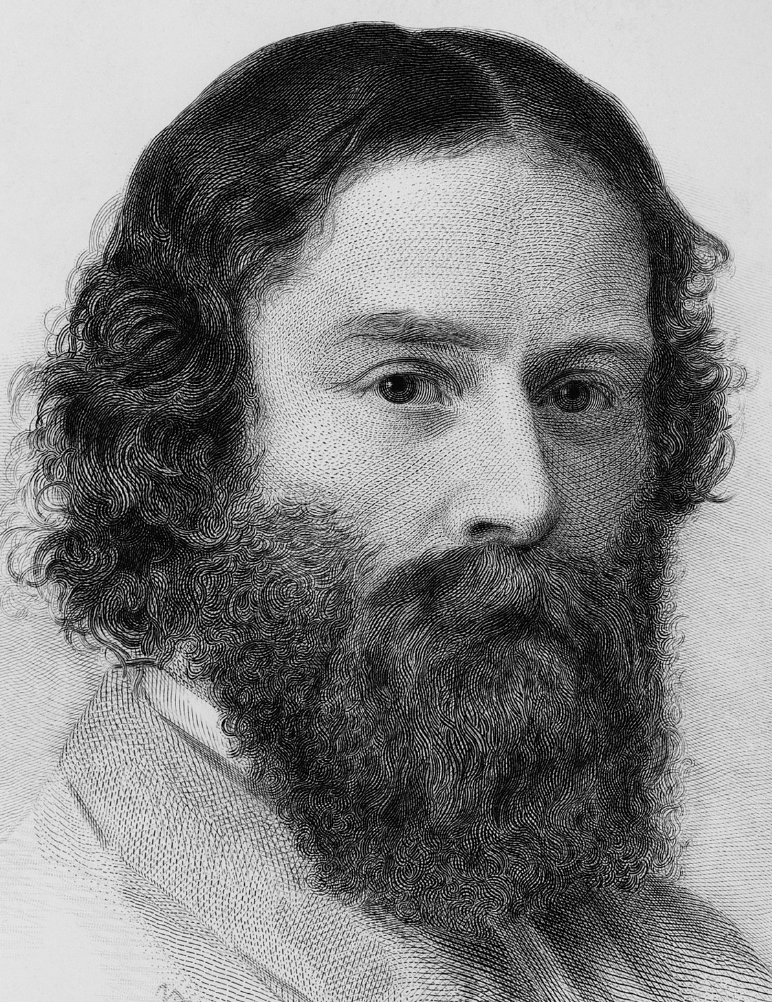On this date in 1819, poet James Russell Lowell was born in Cambridge, Mass., the son of a Unitarian minister in a family which went back eight generations in America. Lowell was one of the “Fireside Poets,” a group of New England writers that included Longfellow, Whittier and Holmes. Lowell earned his B.A. in 1838 and his L.L.B. in 1840 from Harvard. An ardent abolitionist, he left the law for literature, editing several journals.
He edited the Atlantic Monthly (1857-61) and the progressive North American Review (1864-72). A professor at Harvard for nearly 20 years, he also served as a minister to Spain and Great Britain. The poet wrote A Fable for Critics (1848), The Biglow Papers (serialized articles published in book form in 1848 and 1867) and The Vision of Sir Launfal (“And what is so rare as a day in June?”) in 1848.
Although Lowell’s poetry contains religious views that were conventionally 19th-century Unitarian, rationalist biographer Joseph McCabe suggested that, based on his later remarks, Lowell became agnostic. His later poetry included “The Cathedral “(1870), which dealt with the conflicting claims of religion and modern science.
He married the poet Maria White in 1844. They had four children, only one of whom survived childhood, before she died in 1853. He married Frances Dunlap in 1857. She died in 1885, six years before his death in 1891 at age 72.


